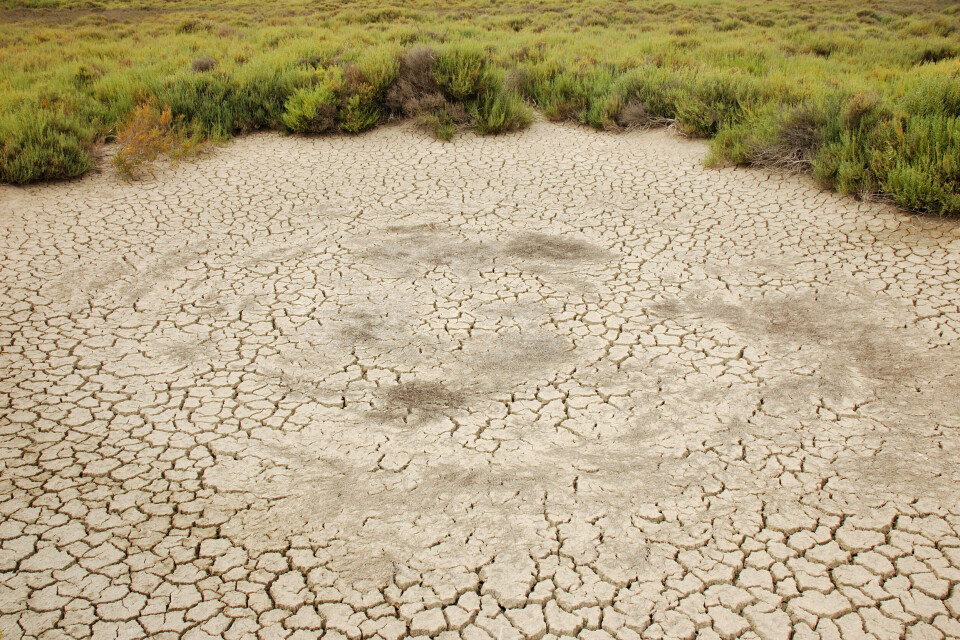-
Trump calls for Marine Le Pen to be freed (but she is not in prison)
US president said her embezzlement court case was a ‘witch hunt’
-
France’s €3 book delivery fee challenged in EU court by Amazon
Online retailer said measure is protectionist and ‘in breach of EU laws’
-
Allergies: How to know pollen levels in your commune of France
Interactive online maps can track and predict how pollen is changing in the air
Climate change in France: People ‘do not understand what’s coming’
A leading scientist warns that the country is at high risk of drought and lacks ‘food resilience’, and calls for greater action from the presidential election candidates

People in France “still do not understand what’s coming” when it comes to climate change, a leading scientist has said, and has called on the election candidates to do more to tackle the “energy question”.
Emma Haziza, a water use specialist, made the warnings in an interview with FranceInfo.
She said: “It's a major issue but I've not heard much about it during this presidential campaign.
“I don't think we have understood what is happening in front of us with these temperature changes, and we have not understood what the lack of water means.
“It concerns about four billion human beings on Earth but we are not used to not having water in our taps. It's also an energy issue because most energy sources are powered by water, including nuclear power and hydroelectric dams, but water is also needed to get oil or gas.
“We need astronomical quantities of water, so it is clear that the energy question is arising.”
Ms Haziza’s warnings come less than two months after more than 1,400 scientists, researchers and environmental experts in France wrote an open letter calling for the 2022 presidential candidates to take action on the climate crisis, and criticising the lack of debate so far.
Read more:1,400 experts say French presidential candidates must address climate
‘Abnormal becoming the new normal’
Ms Haziza continued: "I don't think we've understood what's coming with these temperature changes. We haven't understood what the lack of water means. [It also raises] the question of our food resilience…and energy use.”
She explained that many areas of France are already suffering with drought and wildfires, and that this is likely to get worse as climate change increases.
Read more: Homes evacuated: Dry weather leads to multiple wildfires across France
She said that many areas are already vulnerable, as the underground water table does not get “recharged” sufficiently over winter, causing a deficit, and a higher risk of drought.
She said: “The main regions concerned today are the Pyrénées-Orientales, the whole of Provence right to Nice, and then Poitou-Charentes.”
The problem has already been making itself known this month, she said, which is usually considered abnormal.
“This ‘abnormality’ is becoming the new normal,” she said. “Since 2017, we have had historic droughts. Some areas of the Pyrénées-Orientales have up to a 75% deficit in rain. Ground levels are extremely low too.
“If all these water masses, which are supposed to hold out until summer, are lacking in March, it’s a problem. The most aggravating factor is that with each heatwave, we have a country that is getting deeper into drought. If we’re moving towards a hotter and drier summer, as seems to be the case, we are at risk of yet another historic drought.”
Ms Haziza said that today, “there is little doubt” that climate change is causing the issue, but that countries in northern Europe are still “absolutely not ready” to face the shift.
Food and water consequences
Consequences of the drought could be substantial when it comes to “food resilience” and water supply, Ms Haziza said.
She said: “The question of our food resilience arises today because we do not have an agriculture capable of feeding our population. This is the case here and elsewhere. We are currently experiencing historic droughts in Morocco, Tunisia and Portugal. Hydroelectric dams have been shut down for several months in Portugal.
“The issue of water is also a question of electricity and food, it is a global phenomenon. If we go further, China and other countries such as Brazil and Canada last year are experiencing historic droughts.
“The reserves of wheat or other foodstuffs that are not going to be possible on the soil of each territory will be sought elsewhere, but if everyone starts to look for it elsewhere, there is a real problem. Our only solution is to make sure that we reform our agriculture to feed our population in the first place.”
Flooding, heatwaves and farming losses
It comes as the latest report from the Intergovernmental Panel on Climate Change (IPCC) warned that France was at risk of flooding, heatwaves and farming losses due to global warming, and that “the extent and magnitude of climate change impacts are greater than estimated in previous reports”.
Read more:Floods, heatwaves: New report predicts global warming effect on France
Hosepipe bans and drought warnings are becoming commonplace in France in summer, while a report published earlier this month found that bungalow properties in rural areas are most at risk of drought-related subsidence, with cracks in walls and floors most common.
Related articles
New map: Risk of summer drought in France
Longer deadline for natural disaster insurance claims on way in France
Weather: record high temperatures across France for the end of 2021
Bungalows in France at most risk of drought-related subsidence
























